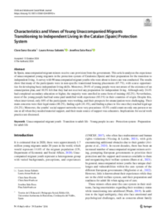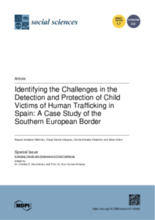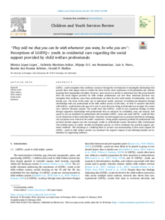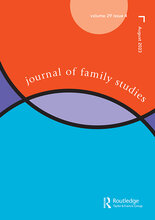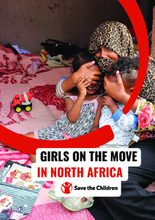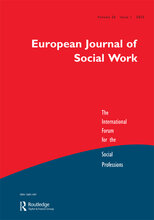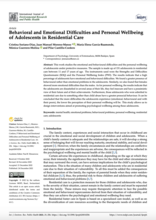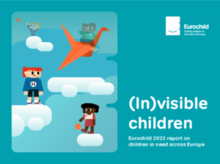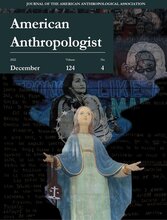Displaying 1 - 10 of 114
This article analyzes the experience of unaccompanied young migrants in the protection system of Catalonia (Spain) and their preparation for the transition to independent living. A survey with 90 unaccompanied migrant youths who were about to leave care was conducted.
Analyzing 23 interviews with professionals in the field, this article identifies the factors that contribute to high levels of child trafficking in Spain.
The focus of this study was to understand youths’ processes of resilience-development through relationships with care professionals in the child welfare system. In this study, the authors held 15 narrative interviews with LGBTQ+ youth between the ages of 14 and 21 years that were living in residential care in Spain.
This study aims to develop an understanding of the distinctive features of kinship and non-kin foster care based on information obtained from fostered children and child care professionals in Spain.
This study analyzes the sequential relationships between exposure to adverse childhood experiences, trauma-related symptoms, psychological maladjustment, and the perception of group climate and peer interactions for those in out-of-home placements in Spain.
This study aims to address a gap in migration research, by developing a holistic and gender-specific understanding of the migratory patterns and experiences of girls in, through, and to North Africa. To do so, the research team employed a qualitative research approach, informed by child- and gender-sensitive practices, to collect data from girls and boys in Italy, Spain, Morocco, and Tunisia.
The aim of this article is to analyse the factors that intervene in decision-making by childcare professionals regarding non-kin foster care in the north-east of Spain.
This paper studies the emotional and behavioural difficulties and the personal wellbeing of adolescents under protective measures in Spain.
This report highlights the recommendations and priorities that EU decision-makers and national governments can do to support the most vulnerable children and prevent widening inequalities.
This article explores the concept of solidaridad, considers its enduring currency in kinship discourse in Spain, and analyzes various case studies from the authors' respective research projects.

